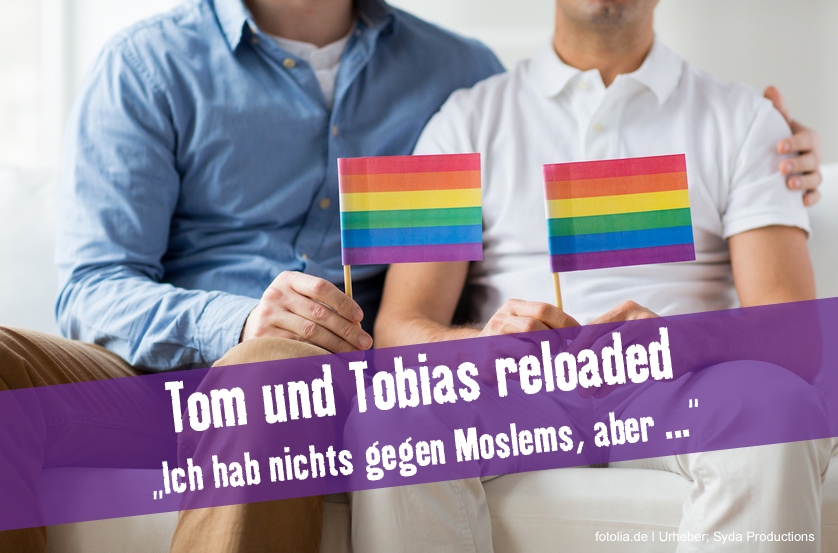Our Article about a fictitious gay couple who shun Muslims and queershas caused quite a stir. Some commentators accused our author of making statements that he did not make. We do not wish to comment further on such contributions. We do, however, take differentiated criticism seriously. We have submitted them to the social scientist Dr Andreas Heilmann.
Andreas, some commentators remarked that faggy behaviour reinforces a certain image of gays. This makes it difficult for young people to come to terms with their sexuality. Can such a connection be made?
I think that's absurd. Adolescents often orientate themselves towards role models. The more diverse the role models they encounter in their environment, the greater the opportunity to try things out and develop an individual personality. In dealing with diversity, we learn to tolerate differences and to accept others, whose mere existence does not endanger us, as equals and even as enrichment.
The world is not as simple as contemporaries like Tom and Tobias make it out to be. In reality, we have to deal with multiple affiliations that cannot be neatly separated into groups. Instead, they come to bear in contradictory ways in one and the same person. Tom and Tobias, for example, demand acceptance for themselves as gay men from the heterosexual majority society, which they themselves, as middle-class men, do not want to grant to effeminate queers and Muslim refugees.
The author believes that Muslims are not necessarily more homophobic than Christians. Many readers disagreed with this. What do you think?
In times of Pegida, AfD and the like, we must be careful not to replace the devaluation of people based on their skin colour, for example, with a "culturally based racism" that, for example, accuses Islam of homophobia across the board. A wide variety of people behave in homophobic and/or racist ways due to a whole range of influencing factors. This cannot be reduced to culture or religion.
Nevertheless, a common pattern of perception of the world can be recognised: a perspective of devaluation and exclusion of people who are different. Fear plays a supporting role in this, for example the feeling of belonging to the social relegation group and not being able to influence (political) events.
Another example is the fear that one's own masculinity will be called into question and that one will lose a privileged position. Tom and Tobias also adopt this limited perspective and justify it by portraying themselves as victims - easily recognisable in introductory sentences such as "You're still allowed to say that" or "I'm really not racist, but ...".
What do you yourself criticise about our article?
Tom and Tobias are well portrayed as characters and some readers will probably recognise themselves, which partly explains the harsh reactions. However, the article takes things to extremes and therefore does not get by without labelling. "Gays", "faggots", "Muslims", "Christians", "Syrians", "Germans" - with such generalised statements, there is always the danger that stereotypes and prejudices about the respective group are evoked. They are the gateway to resentment. That is my criticism. But the bottom line is that the article is a stumbling block against unreflected racist discourse. And that is a good thing.










